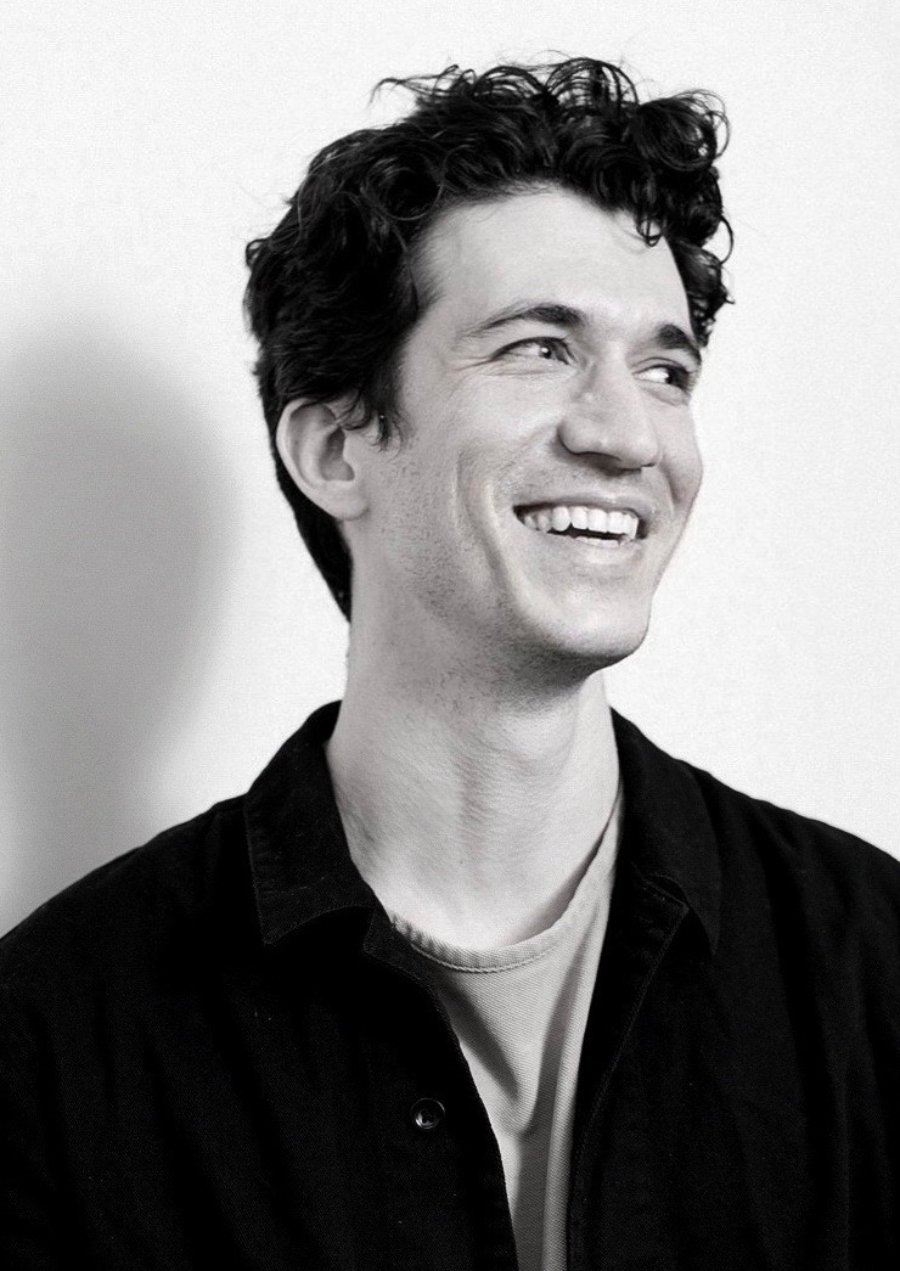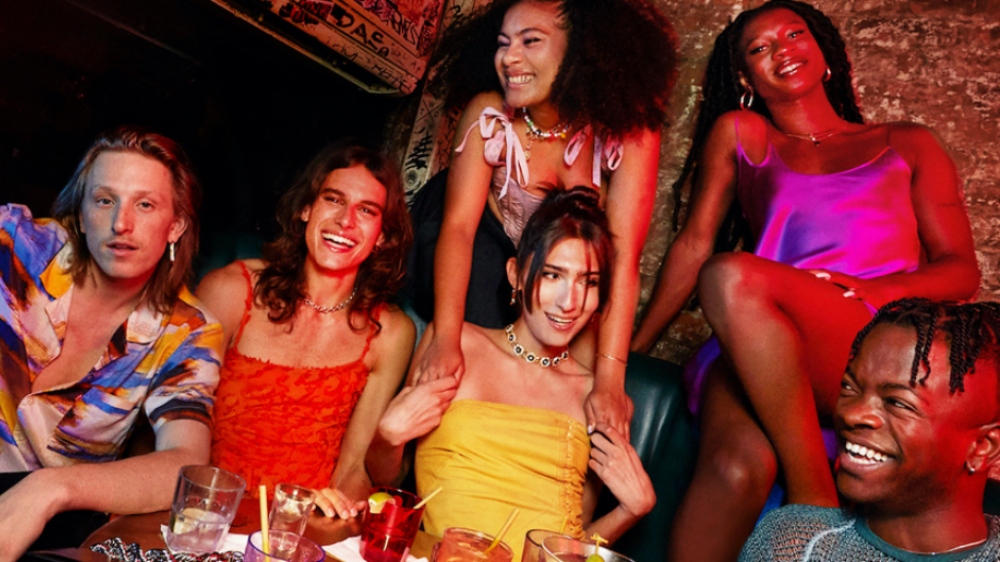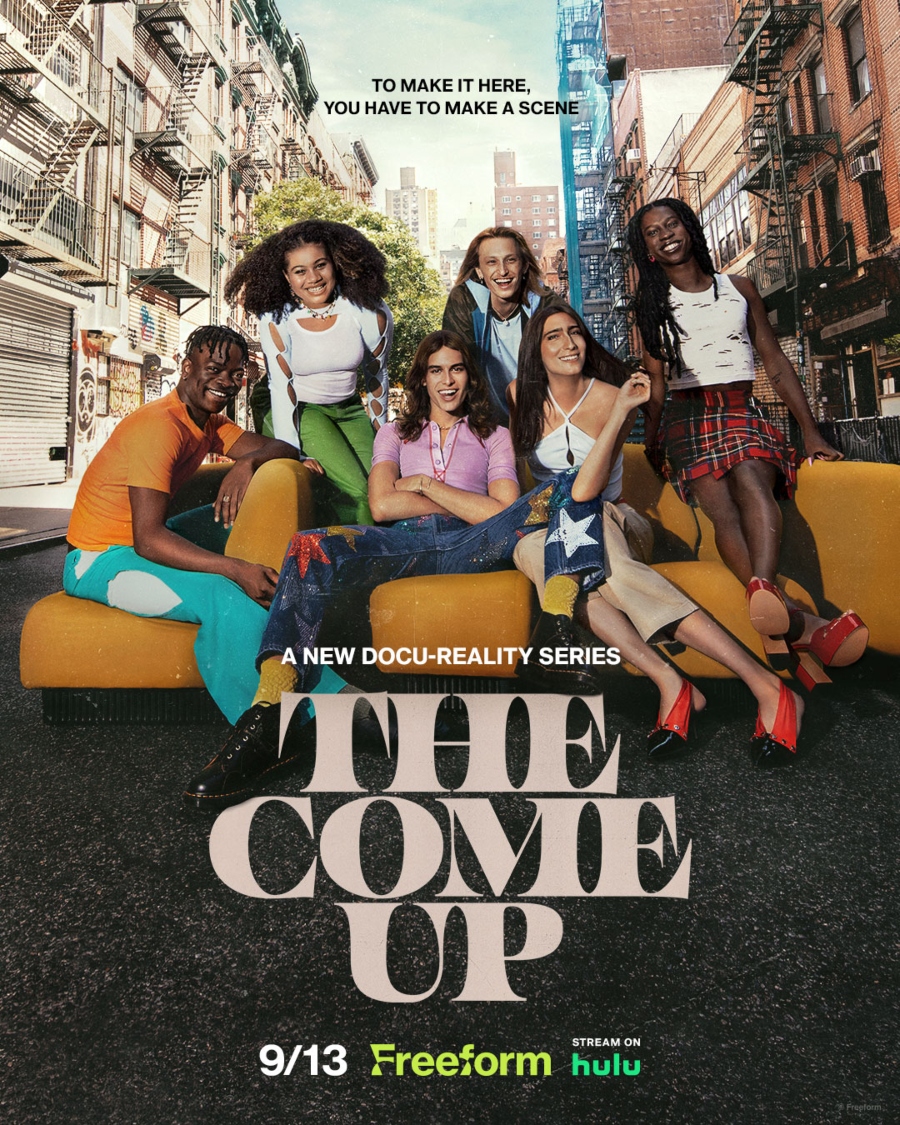Adam Brodsky wears many hats. He’s a singer and a musician who has also DJ’d and produced. And he also heads up Woolly Music, a collective of composers, producers, and music supervisors who have worked on a wide array of award-winning projects.
Additionally, Brodsky has served as Music Supervisor on such TV series as Desus & Mero, King of the Road, and Black Market With Michael K. Williams. His most recent gig is The Come-Up, a Freeform/Hulu reality show that tracks the lives of six young and creative disruptors — a model, an actress, a photographer, etc. — who settle into the Dimes Square section of New York City hoping to make their mark on the world.
All eight episodes are currently streaming, and Below the Line recently caught up with Brodsky for a Zoom call on which he discussed how he worked his way up in the business, landed the gig, and captured the sound of Downtown using his well-trained ear for distinctive music.

Below the Line: Where are you from and what led you to music and then music supervision?
Adam Brodsky: I’m originally from the Boston area. I grew up in a house of music lovers. My mom was an elementary school music teacher for 30 years. My dad wrote for fun — some musicals and musical show tunes — so my upbringing was very much singing and dancing around the piano.
On the music supervision side of things, I moved to New York City straight out of college. I was working in a music venue, booking shows five nights a week at Glasslands, Cameo Gallery, and Baby’s All Right, if you’re familiar with those music venues. I was playing in bands and DJing. I was always excited about music in film, TV, and ads. I just pivoted over to working as a music supervisor at a music licensing company, working on a lot of reality TV — unscripted stuff, like Real Housewives, American Pickers, and Pawn Stars. Some foundational, unscripted series on Bravo and A&E. That was how I got my bearing working in music supervision, and learned the language [of] it, in terms of what quirky comedy music sounds like and what tension music sounds like. I was put through the ringer of working on wall-to-wall music for series like those.
BTL: How did you get your big break and begin actually working on the shows?
Brodsky: I moved over to Vice Media as a Music Coordinator. I’m working on the music supervision team for Viceland, which is now Vice TV. It’s a super exciting time because there were a dozen new productions that were all being produced in-house. The Vice offices in Brooklyn take up an entire square block, just about. The first floor was all of the showrunners, producers, and editors, as well as me and the rest of the music supervision team, working on those productions. With that New York City network of producers and music students, I got a ton of experience. I built up connections and relationships with people. As those people went on to work on other productions, they knew I was reliable and had a good ear, so they tried to bring me out to work on weekends.
BTL: Where does Woolly Music fit into this? Is it your overall company and you do jobs within it? Are you also a gun for hire on other projects that aren’t Woolly Music projects?
Brodsky: Woolly Music is my company that I founded several years ago. We do a lot of different things, and I always say we’re still trying to do whatever works. We’re a 360-degree music solutions company for music supervision and original composition, as well as music licensing for film, TV, ads, trailers, and video games. We want to stay flexible and do whatever works.
For supervision stuff, you’ve got me and my coordinator, Rivka Rose; we’re working across the entire thing, soup to nuts — music supervision, music clearance, music licensing, fee negotiation, cue sheets. The whole thing, from start to finish. They would be hiring Woolly Music to come on as music supervisors, but we also represent, separately, a catalog of artists. Mostly emerging artists, independent singer-songwriters, and bands who are up-and-coming. We also pitch them to other programs for film, TV, and ads. We work with music supervisors. We work with composers and producers who — full time — compose for ads.

BTL: What clicks in your head that says, “This is the right song for this commercial” or “This is the wrong song for that movie or trailer”?
Brodsky: It’s specific every time. For TV shows — The Come Up, for example, [features] a scene where Claude (Shwartz) is breaking up with her boyfriend. On TV shows when there’s a breakup moment, you want a song that reflects the melancholy feeling of breakups. Also, you want songs and lyrics about breakups. I’ll put together a brief and send it out to different labels, artists, or music vendors. I’ll say, “We’re looking for music that has a contemporary feel; pop, or singer-songwriter stuff that has lyrics about breakups and feels a little melancholy.”
For ads, sometimes you want lyrics, but most of the time for 30- or 60-second ads, you just want feel-good music that helps sell the product and get the message across. For TV shows, you can have choruses and even full verses with lyrics that tell the story of what you’re trying to convey. For commercials, there’s usually a lot of video and messaging. You want upbeat music that has an intro and then kicks into a feel-good moment. Maybe there are one or two words that are like, “Yeah, I’m doing my thing!” Something like that, about feeling good or feeling yourself that helps to convey that emotion. You don’t want too many words, like a whole verse.
I heard somebody who works in trailers say the other day, ‘When we have a chorus, the trailer has to be on the nose to tell the message of what the movie is about.’ Trailers are super-specific [in] the way they’ll do music edits. You need stems of all the various musical instrument components so that they can edit it in a dynamic way. There are lots of stops and starts when you’re working with a trailer.
I was put in touch with a talented hip-hop artist the other day and he was like, ‘Where do you see this landing?’ I was listening to it and said, ‘I’ll just tell you now. I’m not going to be able to get this into advertisements for you because it’s too specific.’ It was cool music and authentic, which is, first and foremost, the most important thing. No matter what, even if the lyrics are about having the best day ever, ideally, you would think that they would help to sell the product. If it’s not authentic, if it feels too canned or too on the nose, it’s not going to connect with audiences. I told him, ‘I like that your music’s authentic. I can tell you’re an artist, and this is real music, but it’s a bit too dark and heavy to land in commercials. That said, it could totally land on TV stuff.’
BTL: How did The Come Up come your way?
Brodsky: [Co-Directors ]Jessica [Chermayeff] and Ana [Veselic] reached out. They were working with a producer on their team who I’d worked with, and put me in touch. We had several conversations and I think they liked me because I told them, ‘The Come Up focuses on downtown and contemporary music cultures; club cultures, and 20-somethings who seem to be clued into that scene.’
I had mentioned, ‘When I go to places like Bossa Nova Civic Club, Mood Ring, or Rash’ — which are some of the clubs in Brooklyn that are at the peak of where these scenes are and where there are cool DJs playing — ‘I’m secretly Shazam-ing songs, because that’s where the coolest music is being played.’
They’re like, ‘Okay, you get it. You know the type of music we’re looking for.’ When they knew that I was on the same wavelength as them, and also the characters on the show, they were excited to see where I could take the music.

BTL: The show specifically focuses on the Dimes Square and LGBTQIA+ communities. How important was it to license songs that either come from those communities or reflect those communities?
Brodsky: It was important, for myself, the directors, producers, and the entire team. We wanted to reflect the specific moment and the community of the kids we were following, not just use generic pop sounds. We know the power of the perfect pop moment can really break through, but, as these characters are coming into their own, in their careers and identities, we also wanted to support emerging musicians.
It was important to focus on LGBTQIA+ and the queer community, and also to have fun with it, to represent contemporary sounds of New York, as well as pay homage to the nostalgic jazzy and Latinx communities, all the different beat makers and music producers of the past. We spent a long time and a considerable amount of work thinking about, “What is the sound of Downtown’s past? Is that the sound of downtown today?” We all got excited [and began] collaging and coming up with different sounds to help the soundtrack land where it ultimately landed.
BTL: The show has been streaming for a couple of months now, so how pleased are you with the reaction in general, and to the music choices specifically?
Brodsky: I’m quite pleased with the way that the soundtrack turned out. There are a couple amazing moments, whether it’s the Charlie XCX culminating dance scene, or there’s a good sync usage of a Christine and the Queens song that shines through. There’s a young artist I love. Her name is Katherine Li. Her song “Never Had a Chance” is used in a cool, upfront way, and she’s having a moment on TikTok right now, which is cool to see. I’m pleased with the way the soundtrack came together. It’s on Spotify.
In terms of the reaction, it was cool to drive through LA and see billboards, and to turn on my TV and see ads for it. It’s on the Hulu landing page. A lot of people have told me they liked it and that they’ve enjoyed listening to the music, so that’s all been cool. We’ll see if there’s a Season 2. That will be a good indicator of the reaction overall, [and] how it was received by the network and the audience.
BTL: What else are you working on at the moment?
Brodsky: I’m chatting with a few different companies about potential supervision projects. Nothing that I can share quite yet, but I’m always building the Woolly roster. I’m always looking to sign with new creative artists, and just collaborate with anybody [on] exciting creative projects.
The Come Up is now streaming on both Hulu and Freeform.





